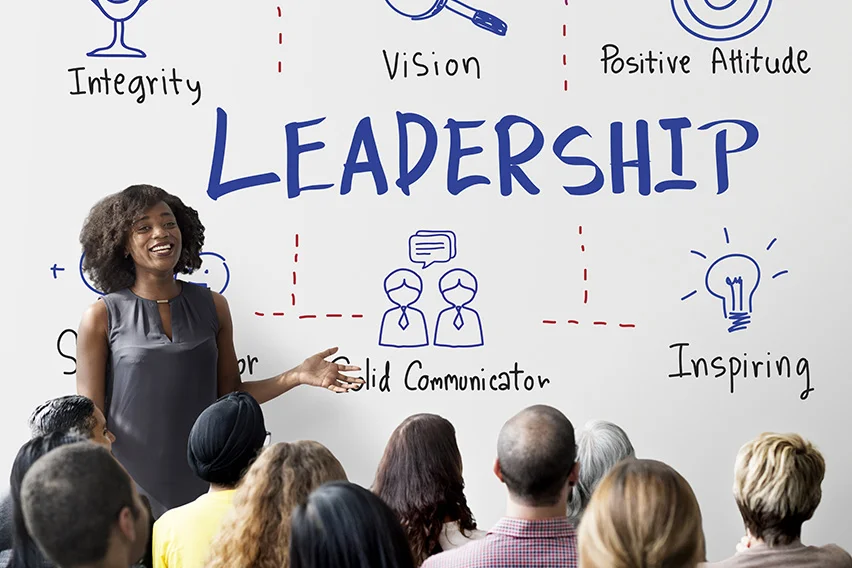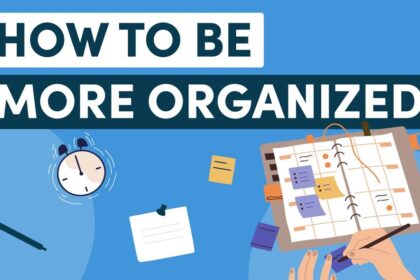How to Develop Leadership Skills at Work 2024, In today’s fast-paced and dynamic workplace, leadership skills are not just valuable assets for those in managerial roles; they are essential for professionals at all levels who aspire to excel and make a lasting impact. Effective leadership encompasses a range of competencies, from communication and decision-making to strategic thinking and inspiring others. By cultivating these skills, you can elevate your career, drive positive change, and contribute to the success of your organization.
Whether you’re an entry-level employee, a seasoned professional, or an aspiring manager, developing leadership skills can open doors to new opportunities and empower you to make a meaningful difference. Here are some practical strategies to help you build and refine your leadership capabilities within the context of your current role:
- Embrace a Growth Mindset
The foundation of leadership development lies in embracing a growth mindset – a belief that skills and abilities can be cultivated through dedication and continuous learning. Recognize that leadership is not an innate talent but a set of skills that can be developed and refined over time. Approach every challenge and opportunity as a chance to grow and expand your knowledge and capabilities. - Seek Out Mentorship and Feedback
One of the most effective ways to develop leadership skills is to learn from experienced professionals who have navigated similar paths. Identify potential mentors within your organization or industry who possess the leadership qualities you admire, and seek their guidance and wisdom. Ask for feedback on your strengths and areas for improvement, and be open to constructive criticism. Mentors can provide valuable insights, share best practices, and offer advice on how to navigate challenges and make informed decisions. - Take on Stretch Assignments and Responsibilities
Stepping outside your comfort zone is crucial for developing leadership skills. Volunteer for projects or tasks that stretch your abilities and expose you to new challenges. This could involve leading a team, coordinating a cross-functional initiative, or representing your department in a company-wide effort. By taking on these stretch assignments, you’ll have the opportunity to practice essential leadership skills such as communication, problem-solving, delegation, and decision-making in a practical setting. - Enhance Your Communication and Emotional Intelligence
Effective communication and emotional intelligence are at the core of successful leadership. Actively work on improving your verbal and written communication skills, ensuring that you can articulate your ideas clearly and persuasively. Additionally, develop your emotional intelligence by cultivating self-awareness, empathy, and the ability to build and maintain positive relationships with others. Attend workshops, read books, or seek coaching to enhance these crucial competencies. - Foster Collaboration and Teamwork
Leadership is not about individual accomplishments; it’s about inspiring and empowering others to work together towards a common goal. Actively seek opportunities to collaborate with colleagues from diverse backgrounds and perspectives. Embrace teamwork, encourage open dialogue, and create an environment where everyone feels valued and respected. By fostering a culture of collaboration, you’ll not only develop your leadership skills but also contribute to a more productive and engaged workforce. - Embrace Continuous Learning and Professional Development
Leadership is an ongoing journey, and successful leaders are those who continuously seek out opportunities for personal and professional growth. Stay up-to-date with industry trends, attend workshops or conferences, enroll in leadership development programs, or pursue advanced education or certifications. Continuously expanding your knowledge and skills will not only enhance your leadership capabilities but also demonstrate your commitment to excellence and self-improvement. - Lead by Example
Ultimately, leadership is about more than just possessing a set of skills; it’s about embodying the values and behaviors you wish to see in others. Lead by example by consistently demonstrating integrity, accountability, and a commitment to excellence in your work. Inspire others through your actions, not just your words, and strive to be a role model of the leadership qualities you aspire to cultivate.
Developing leadership skills is a journey of continuous growth and self-discovery. It requires dedication, perseverance, and a willingness to step outside your comfort zone and embrace new challenges. However, the rewards of cultivating these invaluable competencies are immense – from increased confidence and credibility to the ability to inspire and motivate others towards shared goals.
Remember, leadership is not limited to those in formal managerial roles; it’s a mindset and a set of skills that can be honed and applied at every level of an organization. By actively seeking out opportunities to develop your leadership abilities, you not only enhance your personal and professional growth but also contribute to the overall success and culture of your workplace.
Embrace the challenges, seek guidance from mentors, and continuously strive for self-improvement. The path to becoming an effective leader is not always easy, but the rewards of empowering others, driving positive change, and leaving a lasting impact make the journey truly worthwhile.








